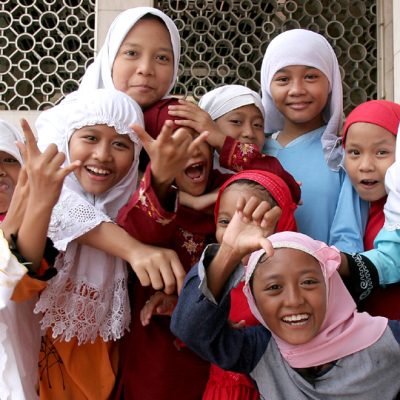In Islam, the concept of caring for orphans and vulnerable children is not only permissible but is considered a highly virtuous act. The Prophet Muhammad (peace be upon him) emphasized the importance of supporting children who have been deprived of the care and protection of their biological families. Fostering, known as “kafalah” in Arabic, holds a special place in Islam as a means to provide for these children in a way that respects their rights and preserves their dignity. In this blog, we explore why fostering is permissible in Islam, its rewards, and how it aligns with the values of Tarbiyyah Horizons in building a supportive community for Muslim children and youth.
The Islamic Concept of Fostering (Kafalah)
Kafalah is an Arabic term that translates to “sponsorship” or “guardianship.” In Islamic law, it refers to taking responsibility for the care, upbringing, and education of a child whose parents are unable to do so. Unlike adoption in the Western sense, kafalah does not sever the child’s ties to their biological family or alter their lineage; rather, it ensures that the child’s heritage, identity, and name are preserved while providing them with the security and love they need to thrive.
The Quran and Sunnah (teachings of the Prophet Muhammad, peace be upon him) both stress the importance of looking after orphans and vulnerable children. The Quran states:
“And they ask you about the orphans. Say: Improvement for them is best.” (Quran, 2:220)
This verse emphasizes that taking care of orphans, ensuring their well-being, and integrating them into society are deeds that hold great reward. It is about enhancing their lives, supporting their growth, and providing them with opportunities for a better future.
The Prophet’s Example: An Encouragement for Fostering
The Prophet Muhammad (peace be upon him) set an inspiring example of fostering and caring for orphans. He himself was an orphan and experienced the kindness and support of his uncle, Abu Talib. Moreover, the Prophet (peace be upon him) fostered Zayd ibn Harithah, treating him with such love and care that Zayd chose to stay with him even when his own father came to reclaim him.
The Prophet’s love and kindness towards orphans were so profound that he said:
“The one who cares for an orphan and myself will be together in Paradise like this,” while he held his two fingers together to illustrate. (Sahih Bukhari)
This hadith demonstrates that the act of caring for orphans and vulnerable children is not just permissible but is a path to Paradise. It is a way of gaining closeness to the Prophet (peace be upon him) and earning the pleasure of Allah.
Fostering Within the Islamic Framework
While fostering is highly encouraged in Islam, it is important that it aligns with Islamic principles, particularly with regard to lineage and inheritance. Unlike traditional adoption practices that may change the child’s family name or inheritance rights, Islamic fostering respects the child’s biological identity. Children in a fostering arrangement retain their family names and are not legally adopted in the sense of becoming a direct heir. This preserves their lineage and ensures their rightful identity is maintained.
At Tarbiyyah Horizons, we ensure that our fostering practices align with Islamic principles:
- Preserving Lineage: Children maintain their family names, and their biological heritage is honored and respected. Foster families provide love and support while acknowledging and preserving the child’s own identity.
- Halal Environment: We provide foster homes where children can practice their faith freely, observe daily prayers, receive halal meals, and celebrate Islamic holidays. This helps maintain a child’s connection to their religious and cultural heritage.
- Ethical Treatment: Fostering in Islam is about providing a nurturing and caring environment, without claiming the child as one’s own in a legal or biological sense. It is about being a guardian who supports the child’s growth while fulfilling their emotional and spiritual needs.
The Rewards and Virtues of Fostering in Islam
Fostering in Islam is a highly virtuous act that comes with immense rewards. The Prophet Muhammad (peace be upon him) highlighted the significance of supporting orphans and vulnerable children in multiple hadiths. By becoming a foster parent, you are not only providing for the material and emotional needs of a child but also fulfilling an important religious duty that brings you closer to Allah.
Some key virtues and rewards of fostering in Islam include:
- Closeness to the Prophet (peace be upon him): As mentioned in the hadith, those who care for orphans will be close to the Prophet in Paradise, a great honor for any believer.
- Sadaqah (Charity) that Continues: Fostering a child is considered an ongoing charity (sadaqah jariyah). Every moment of support, guidance, and care you provide continues to earn rewards, even after you have moved on from this world.
- Spiritual Growth and Compassion: Fostering allows you to embody the values of compassion, empathy, and generosity, which are core tenets of Islam. It helps you grow spiritually as you serve and uplift others.
Encouraging Muslim Families to Foster: The Role of Tarbiyyah Horizons
At Tarbiyyah Horizons, our mission is to create a network of Muslim families who understand the importance of fostering and are ready to make a difference in the lives of vulnerable children. We believe that fostering within an Islamic framework is not only permissible but is an opportunity to fulfill a noble duty with immense rewards.
As a new organization, we are dedicated to supporting families who wish to become foster parents by providing:
- Comprehensive Training: We offer training that covers both the practical and spiritual aspects of fostering, ensuring that foster parents are well-prepared to provide the best care in a way that aligns with Islamic values.
- Emotional and Spiritual Support: We work closely with local mosques and religious leaders to provide continuous spiritual guidance and support for foster families, helping them navigate challenges while maintaining their faith.
- Culturally Responsive Care: Our focus is on creating homes where children can maintain their faith and culture. We emphasize the importance of fostering environments where Muslim children can thrive in a halal and faith-centered space.
Conclusion: Embrace the Reward of Fostering
Fostering is an opportunity to serve humanity and earn the pleasure of Allah. It is a way to put Islamic values into action by supporting those who need us most. At Tarbiyyah Horizons, we invite Muslim families to join us in this noble cause and become part of a community where community and care come together.
If you feel inspired to become a foster parent and wish to learn more about how you can make a difference in the lives of children through fostering, please contact us at [contact information] or visit our website at [website link]. Together, we can create a supportive and loving environment for every child who needs it.
References:
- Quran, Surah Al-Baqarah, 2:220
- Sahih Bukhari, Hadith on the rewards of caring for orphans
- Islamic perspectives on fostering and kafalah




